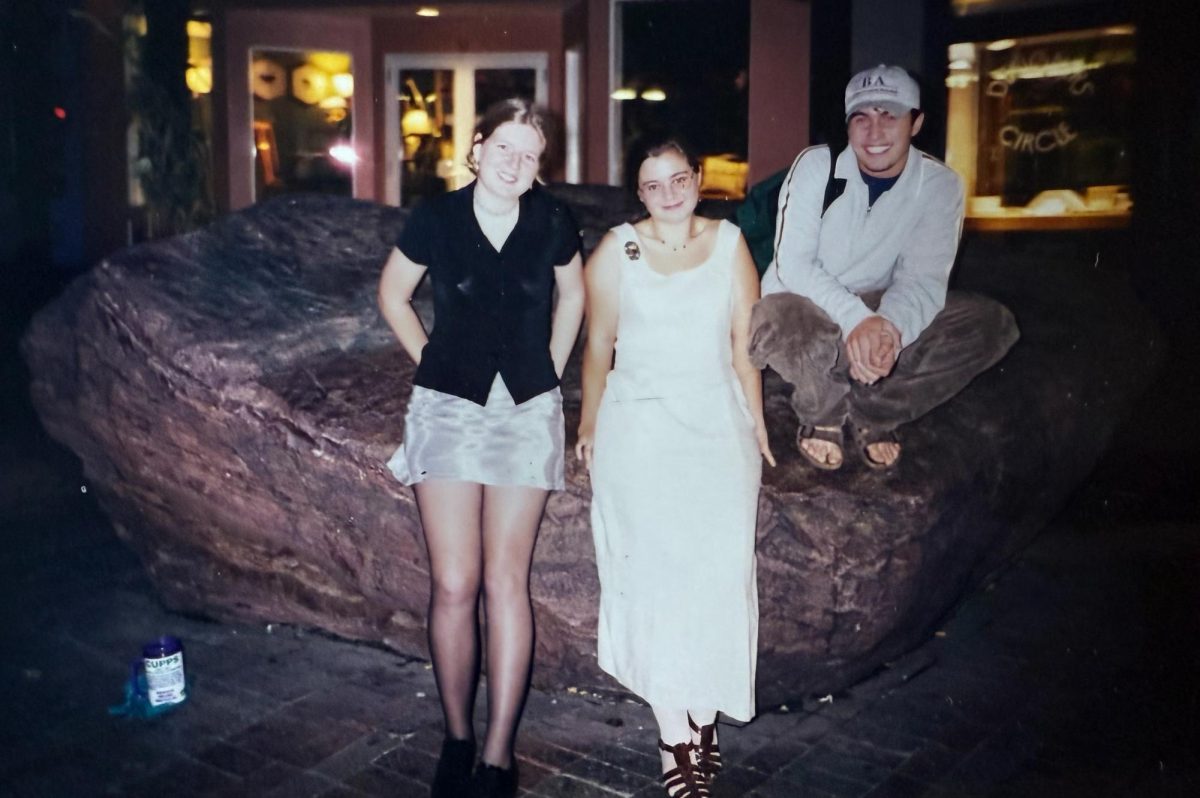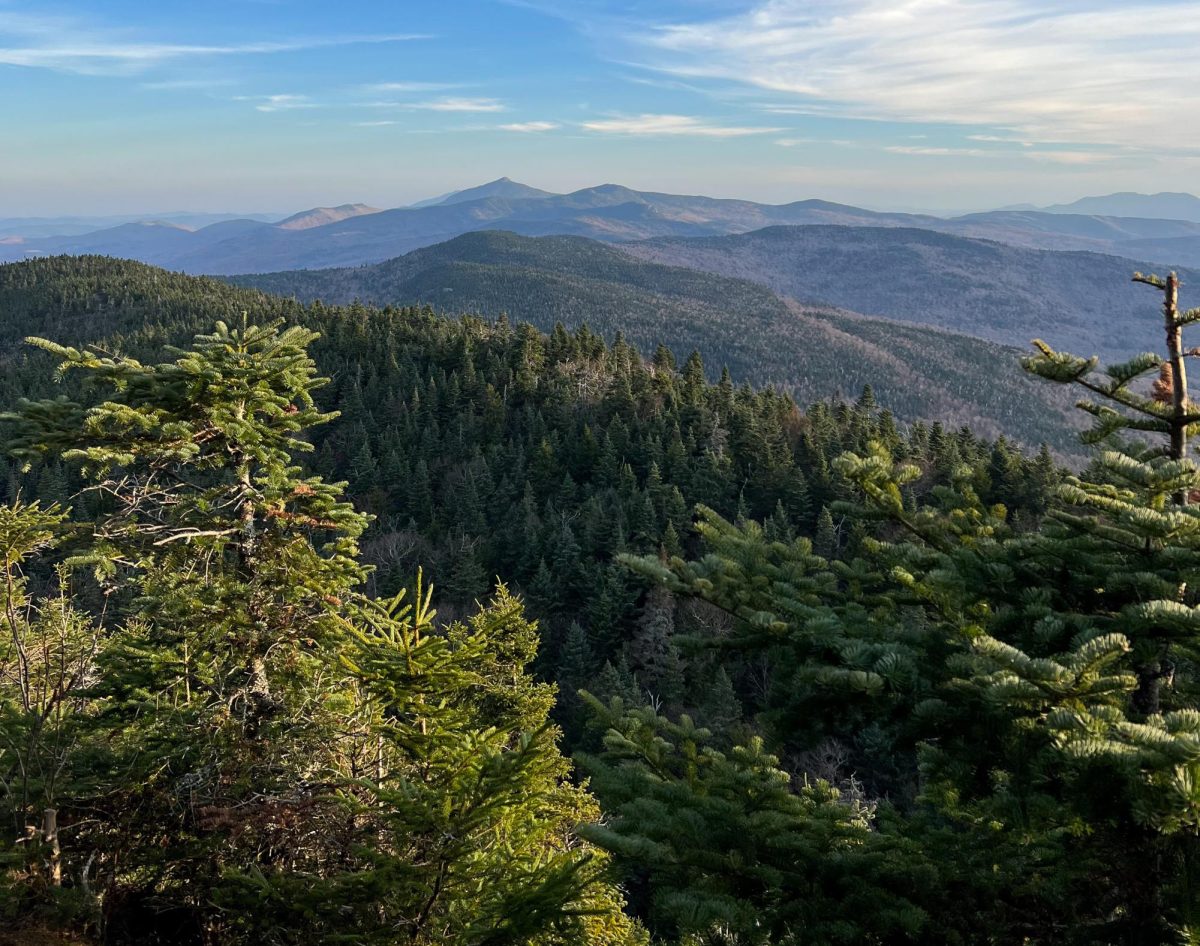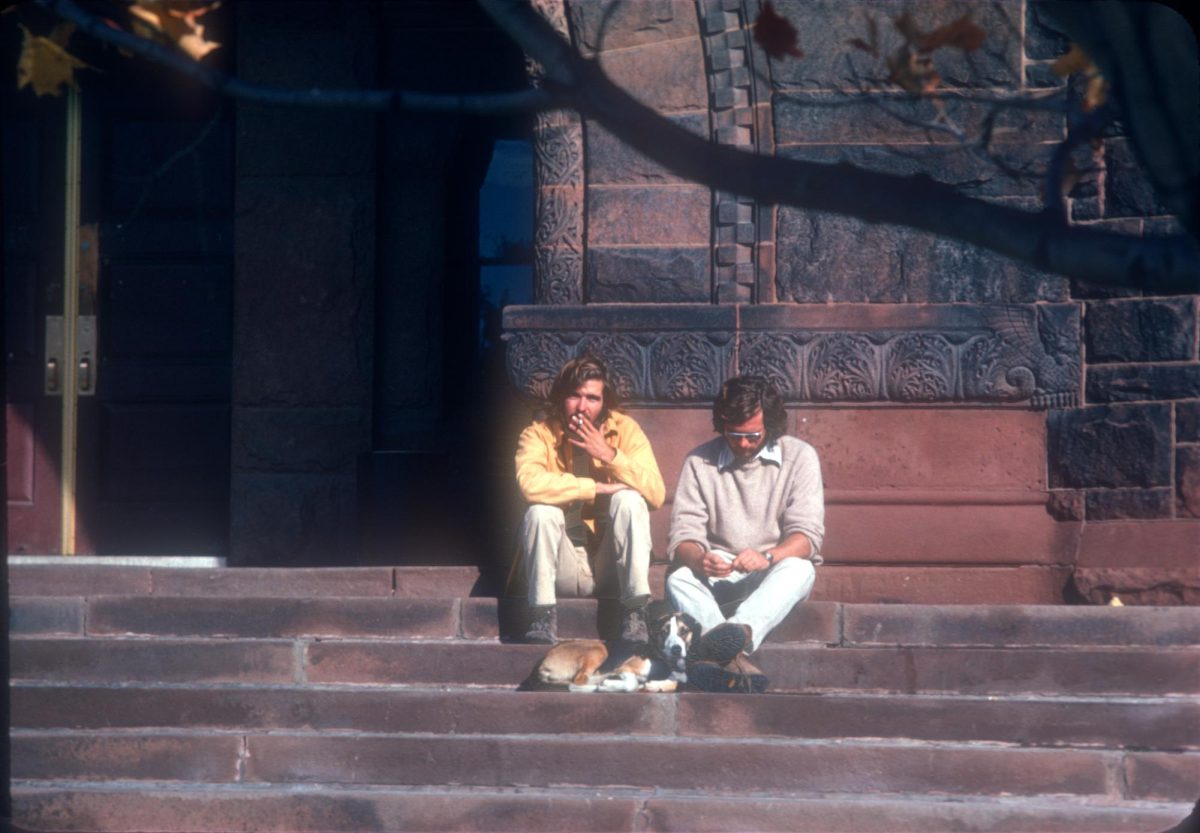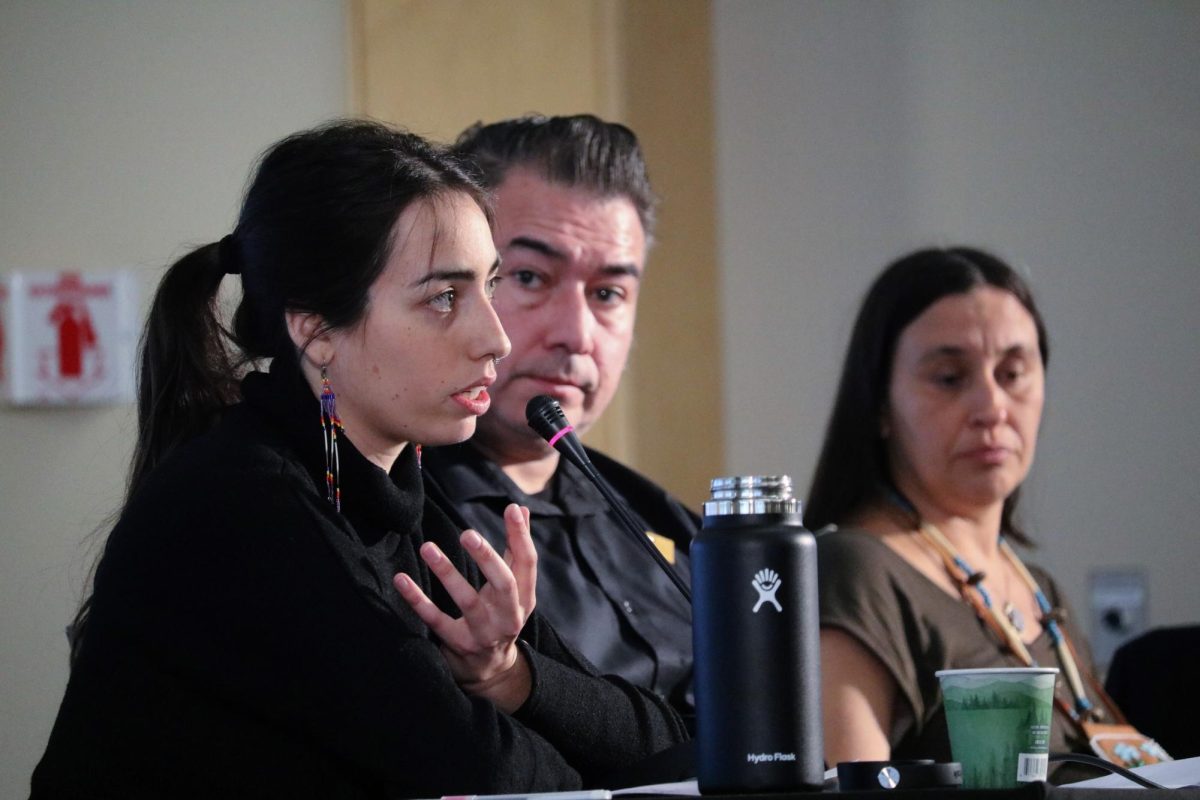Every year, on 4/20 at 4:20 p.m., hundreds of UVM students crowd the Redstone green to celebrate the traditional and unofficial holiday.
In recent years, UVM has gained notoriety as one of the top schools in the U.S. where students consume the most cannabis. What is it like to attend the college with the 10th most “Reefer Madness” in the country?
In a survey of 521 students conducted by the Cynic, 95% said they would consider UVM a “stoner school.” Forty-seven percent disclosed that they use cannabis every day or multiple times per day.
“I think I generally knew a lot of people smoked weed here but I don’t think I realized how much weed and how common it was,” said first-year Mia Gullotti.
Some cannot recall meeting more than a few people on campus that don’t smoke weed.
“I think that I only know like two or three people that don’t smoke weed,” said an anonymous senior.
For first-year Matt Rice, the social aspects of weed maintain their interest.
“My friends are stoners, and our friendships are better because of it,” Rice said.
First-year Maddy Upston said that the campus environment contributes to students’ heavy cannabis use.
“It is easy to smoke for the sake of smoking, especially in social circles or environments that have a lot of weed—like the entire campus,” Upston said.
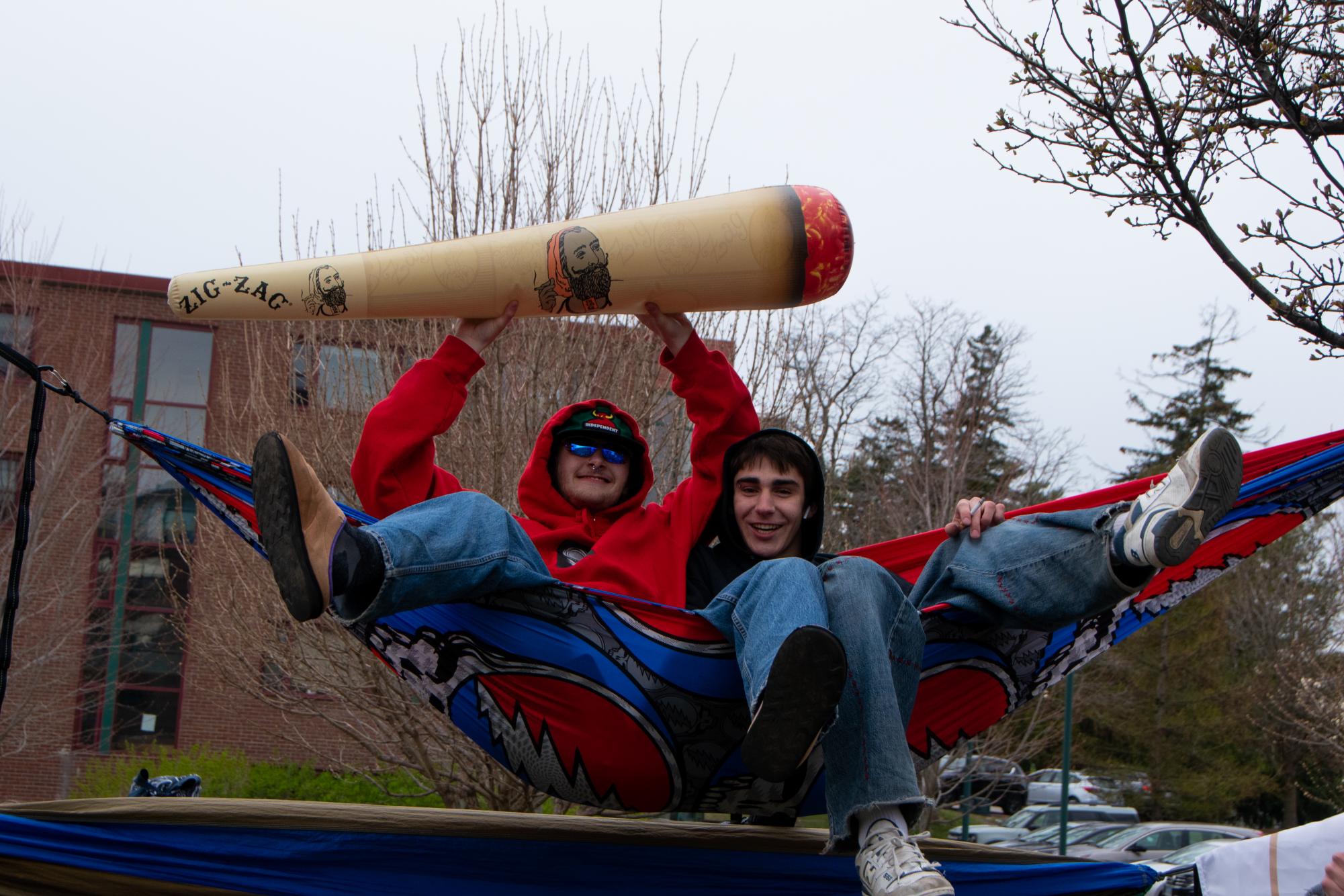
(Aiden Armstrong)
Mike Hill Jr., a substance misuse prevention specialist at LivingWell, said he is aware that UVM students tend to smoke weed. His role on campus is to make sure all students are provided substance misuse education, he said.
Hill discussed that cannabis has become novel in Vermont because of the prominence of its statewide legalization for users 21 and older.
Hill also believes that students assume there are more UVM students that smoke regularly than there actually are, he said.
LivingWell data supports that 50% of students do not use cannabis regularly—meaning two to three times per week, Hill said.
“I went into my first year anticipating that I would feel pressured into smoking, which actually hasn’t been my experience at all,” said sophomore Ava Gordon. “I feel like weed culture at UVM is something that doesn’t have to impact you unless you want to be involved in it.”
For students hoping to get sober, an anonymous first-year referenced the Catamount recovery program as a place where they found some of their closest friends.
“I felt comfortable going [to UVM] because I knew I’d have sober support,” they said.
Hill also encouraged students, regardless of their relationship to cannabis, to consider the effect that cannabis has on their life.
“Cannabis can become habit-forming and addictive,” Hill said. “Cannabis use with tobacco use can [also] create a harder, more difficult habit forming routine than just the use of nicotine and tobacco by itself and cannabis by itself.”
Hill also said that students should use their friends as a resource to reflect on their cannabis use, as well as reflect internally, even saying out loud why they want to smoke.
“Ask yourself that question, [why do I want to smoke?] You may be like, ‘Yeah, I just wanna smoke because I’m bored as fuck.’”
Hill said that simply asking oneself why they want to smoke can be a good prevention measure, especially for young adults that are less inclined to hold themselves accountable.
Students discussed extensive cannabis use leading to multiple issues, including social isolation, depending on someone’s personality.
“If you’re not responsible with [weed], there’s a lot of drawbacks, like self-isolation,” said an anonymous senior. “This happens because instead of hanging out with people, you might just go home and smoke weed.”
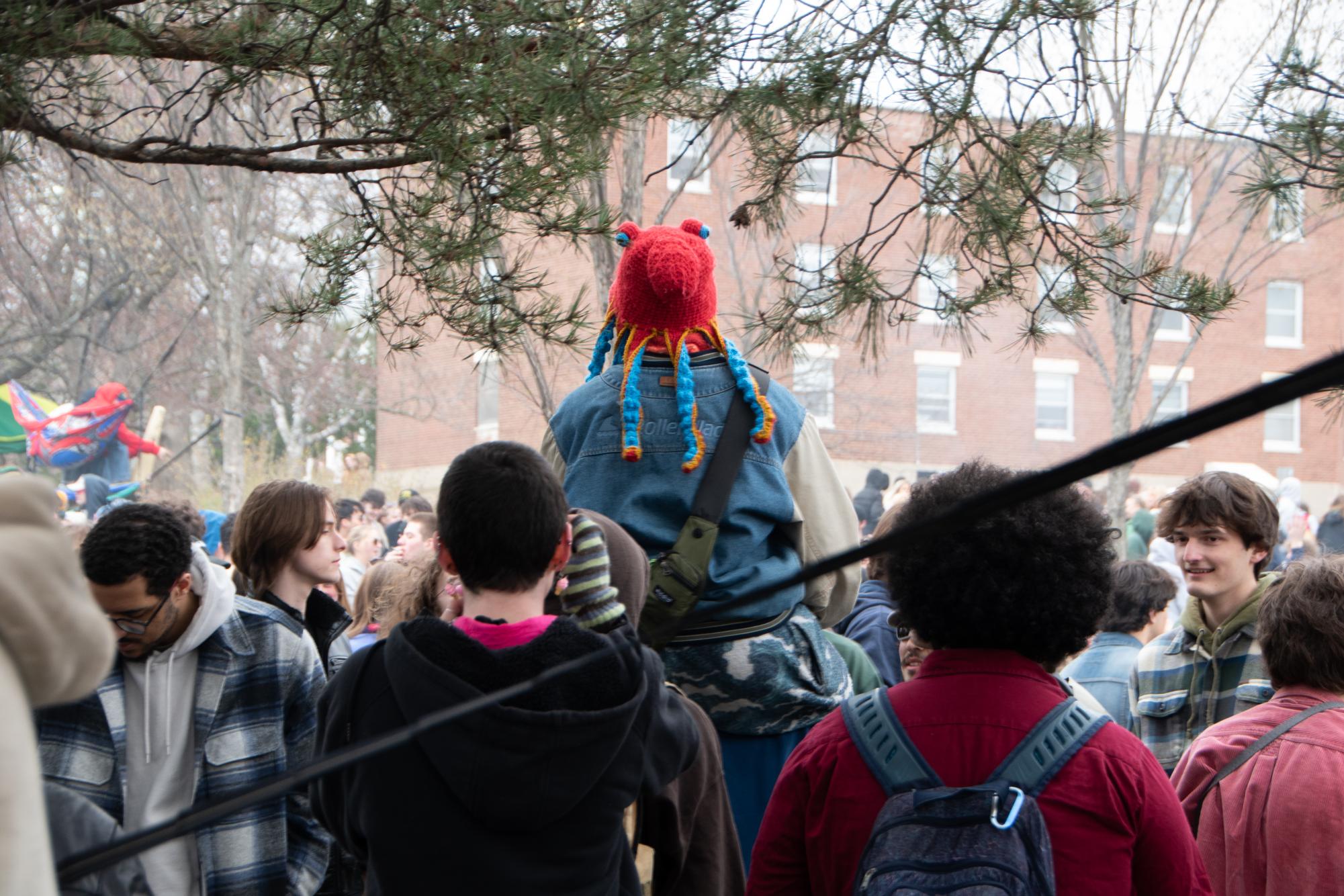
(Aiden Armstrong)
Some students recognized how smoking weed may inhibit them from being productive.
“I just know that if I smoke I’m not gonna get work done,” said first-year Lilli Helming. “So it definitely sets me back. I feel like there’s a lot of times where I’ve been behind on work or not gotten stuff done because I’ve been high instead.”
Although weed can bring people together, it doesn’t have to be the only factor that does.
“I would say most of my friends or almost all of them smoke weed, but we’re all very functional,” said the anonymous senior. “It’s not like smoking weed is the only thing that we do in our lives,” they said.
Non-smokers agreed that weed does not need to be central to a rewarding life at UVM.
“I think that [weed] doesn’t have to be the thing that defines UVM. There are so many other things that UVM could be known for, but I don’t think it’s an overall negative thing,” Gordon said.





